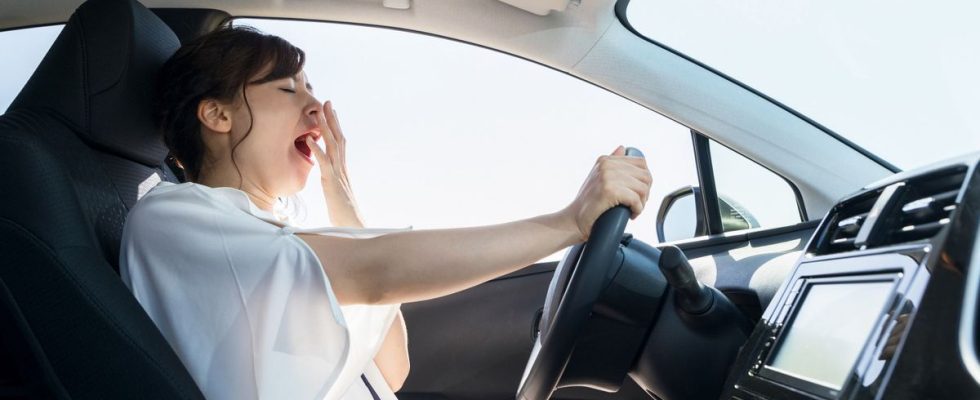Published on
Updated
Reading 3 min.
Roll down the window, drink coffee, or sing… Many drivers use stratagems as diverse as they are varied to stay vigilant while driving. But if you resort to more than three of these tricks, it may mean that you suffer from excessive sleepiness due to obstructive sleep apnea, and that you are at increased risk of road accidents. This is what a new study carried out by British researchers reveals.
According to Inserm“Sleep apnea syndrome is manifested by repeated and uncontrolled interruptions of breathing during sleep. They cause incessant micro-awakenings of which the patient is not aware“. The scientific research organization specifies that these interruptions can last between 10 and 30 seconds, or even more, that they can repeat themselves at least five times per hour of sleep, and that age constitutes a risk factor. More three out of ten people over the age of 65 would be affected, compared to 7.9% of those aged 20 to 44. This disorder is not without consequences since it induces snoring, chronic fatigue, and daytime sleepiness. D ‘where the importance of diagnosing the people concerned to avoid exposing them to certain dangers, particularly on the road.
Drowsiness causes many road accidents
A team of researchers from St James’s University Hospital in Leeds (United Kingdom) was interested in the various tricks used by drivers to stay alert while driving. The idea? To determine if this could make it easier for them to identify people suffering from obstructive sleep apnea syndrome. “Up to a fifth of road collisions may be caused by fatigue or drowsiness. Many patients with obstructive sleep apnea drive for personal or professional reasons and there is good reason to believe that some of them are at increased risk of collision on the road.“, indicates Dr Akshay Dwarakanath, who led this work, in a press release.
Sleep apnea causes drowsiness while driving
The research involved 119 people suffering from obstructive sleep apnea and not taking any treatment, whom the scientists compared to 105 people without the disorder. All participants were asked to answer a questionnaire on their drowsiness in general, their drowsiness while driving, the use of possible subterfuges to remain vigilant in the car (drinking tea or coffee, opening the window, turning on the radio, singing, eating, talking to themselves, or chewing gum), and their history in terms of road accidents. Published in the journal ERJ Open Research from the European Respiratory Society, this work suggests that people with obstructive sleep apnea are more likely to turn to these strategies to stay alert while driving than other participants.
Identify patients more easily
In detail, nearly three in ten people suffering from this disorder (29.4%) indicated that they “frequently” resort to more than three of these subterfuges to stay awake. For comparison, none of the participants in the control group used more than three of these so-called coping strategies. “Our research suggests that patients [concernés] Untreated patients often use coping strategies that could be surrogate markers of sleepiness. Asking about these strategies in the clinic could help doctors identify patients who are at risk for motor vehicle accidents and counsel them appropriately“, underlines the main author of the study.
In France, 4% of the population suffers from sleep apnea, according to Health Insurance. Beyond snoring and excessive daytime sleepiness, affected individuals may also suffer from uncontrollable falling asleep, or problems with memory, mood and concentration, and may be more likely in the long term to develop cardiovascular diseases.
